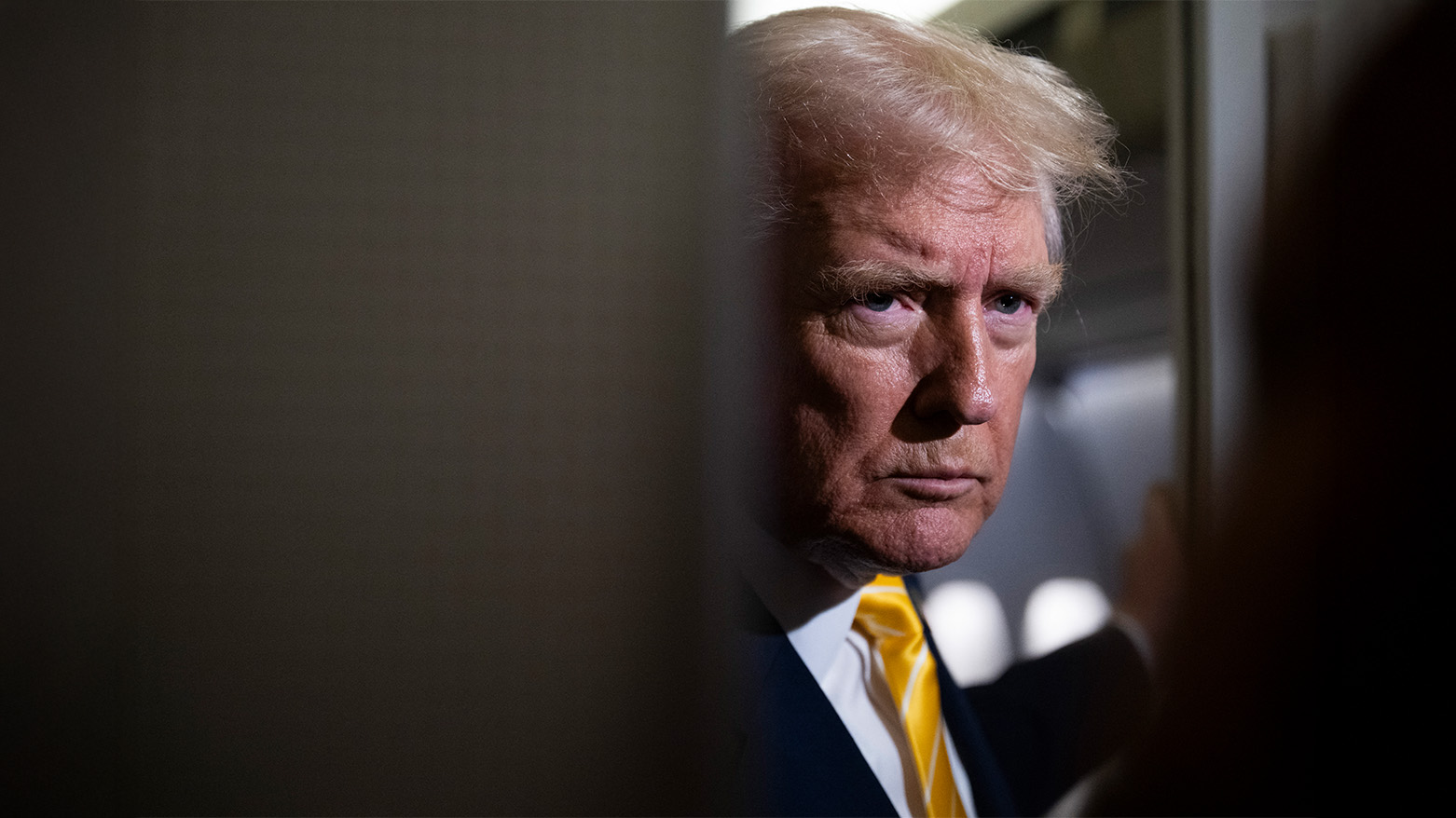Trump Signals Decision on Venezuela as U.S.–Latin America Military Tensions Escalate
Trump says he has “sort of” decided on Venezuela as U.S. naval deployments intensify. Maduro calls for peace and warns of U.S. aggression amid warships, airpower, and recent strikes near Venezuela.

ERBIL (Kurdistan24) – U.S. President Donald Trump said he has “sort of” decided on his next steps regarding Venezuela, at a moment of heightened military tension across Latin America triggered by an expanding U.S. naval and air deployment near Venezuelan territory.
Speaking to reporters aboard Air Force One while traveling to Florida on Friday, Trump offered only a brief hint about Washington’s direction.
“I sort of made up my mind,” he said. “I can’t tell you what it is, but we made a lot of progress with Venezuela in terms of stopping drugs from pouring in.”
His remarks came after weeks of U.S. military activity in the region, including the deployment of warships, fighter jets, and thousands of soldiers, and a series of American strikes on 21 alleged drug-smuggling vessels that Washington says killed at least 80 people. The Pentagon’s operations have intensified concerns among regional governments about the possibility of a broader conflict.
Earlier this week, the USS Gerald R. Ford, the world’s largest aircraft carrier, arrived in Latin America to support what U.S. officials describe as efforts to counter drug trafficking. The build-up has also included F-35 stealth aircraft deployed to Puerto Rico and U.S. Navy ships repositioned across the Caribbean.
Caracas, however, views the deployment as a direct threat. Venezuelan officials have warned that the actions constitute a concealed attempt at regime change targeting President Nicolás Maduro, whom Trump has accused of being a “drug lord.”
CBS News, citing multiple sources, reported that senior U.S. military officials recently presented Trump with updated options for potential operations in Venezuela, including land-based strikes. Although on November 2 the U.S. President downplayed the prospect of war, he said Maduro’s “days were numbered.”
Meanwhile, leaders in the region have voiced alarm. Colombia’s President Gustavo Petro has accused Washington of seeking to seize Venezuelan oil resources and destabilize Latin America.
Venezuelan President Nicolás Maduro responded publicly to the escalating situation during a Thursday rally in Caracas, where he spoke to a CNN correspondent.
Asked whether he was concerned about possible U.S. aggression, Maduro said:
“We are focused on the peoples, and we govern with peace, with the building of these youths.”
In a message to the American public, he added:
“Union for the peace of the continent. No more endless wars, no more unjust wars, no more Libya, no more Afghanistan.”
When asked for a message to President Trump, Maduro repeated:
“My message is: Yes to peace. Yes to peace.”
Venezuela has also announced a nationwide military deployment to counter the heightened U.S. naval presence along its coastline.
Two weeks earlier, the USS Gravely, a U.S. guided-missile destroyer, docked in Trinidad and Tobago—just a few dozen kilometers off Venezuela’s coast—amid the ongoing American military expansion.
The arrival followed the country’s announcement that the vessel and a U.S. Marine contingent would participate in joint exercises with local forces between October 26 and 30.
The deployment formed part of a broader U.S. campaign across the Caribbean and the Gulf of Mexico. According to U.S. data cited by AFP, seven warships have been deployed in the Caribbean and one in the Gulf.